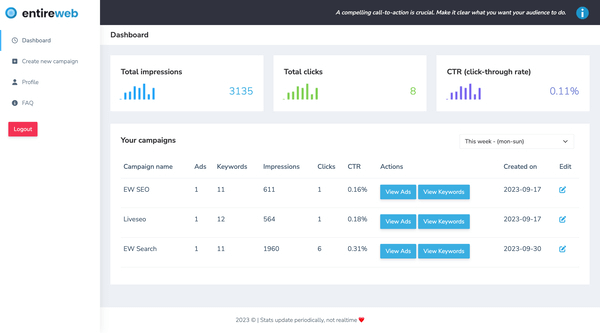1. Introduction
Search engines are essential tools that help us navigate the vast amount of information available on the internet. The core of these search engines lies in their algorithms, which determine the relevance and ranking of web pages. In this article, we will explore how these algorithms work, breaking down the process into simple and understandable steps. By the end, you'll have a clearer picture of how search engines deliver the results you see.
2. What Are Search Engine Algorithms?
Search engine algorithms are complex mathematical instructions that guide search engines in sifting through an enormous amount of data to find the most relevant results for a given query. These algorithms consider various factors, including keywords, page quality, user experience, and backlinks.
3. Crawling and Indexing
The first step in understanding search engine algorithms is to know about crawling and indexing.
- Crawling:
Search engines use automated programs called "crawlers" or "spiders" to scan the web continuously. These crawlers follow links from one page to another, collecting data about each page they visit.
- Indexing:
Once a page is crawled, its data is stored in an index. The index is like a massive database that holds information about all the web pages that the search engine has found. This process ensures that when you search for something, the search engine can quickly access relevant data.
4. How Do Algorithms Rank Pages?
After crawling and indexing, the search engine's algorithm evaluates the indexed pages to determine their relevance to a specific query. Here are the primary factors considered:
- Keywords:
Keywords are crucial in determining the relevance of a page. The algorithm looks for the presence of the search term in the title, meta description, headings, and body of the text.
- Content Quality:
The quality of the content is assessed based on originality, depth, and usefulness. Pages with unique, informative, and engaging content are ranked higher. For this you can use an online paragraph writer to generate well-structured and compelling content efficiently.
- User Experience:
This includes the page's loading speed, mobile-friendliness, and overall usability. A well-designed website that provides a good user experience will rank better.
- Backlinks:
Links from other reputable websites (backlinks) are seen as votes of confidence. Pages with more high-quality backlinks tend to rank higher.
- On-Page SEO:
Proper use of headings, alt text for images, and internal linking are essential aspects of on-page SEO that algorithms consider.
- User Engagement:
Metrics like click-through rate (CTR), bounce rate, and time spent on the page help determine how engaging the content is. Pages that engage users effectively are ranked higher.
5. The Role of Machine Learning
Modern search engine algorithms heavily rely on machine learning to improve the accuracy of search results. Machine learning enables algorithms to learn from user behavior and continuously refine their criteria for ranking pages. Google's RankBrain is a prime example of a machine learning component that helps process search queries and provide more relevant results.
6. Keeping Up with Algorithm Updates
Search engine algorithms are constantly evolving. Major updates can significantly impact search rankings. Here are some notable updates from Google:
- Panda:
Launched in February 2011, focused on content quality, penalizing thin or duplicate content.
- Penguin:
Launched in April 2012, targeted spammy link practices and emphasized the importance of high-quality backlinks.
- Hummingbird:
Launched in September 2013, improved understanding of query context and intent.
- RankBrain:
Introduced in October 2015, RankBrain uses machine learning to better understand search queries.
Staying informed about these updates is crucial for anyone involved in SEO. Websites like Search Engine Land and Moz provide up-to-date information and insights into algorithm changes.
7. Practical Tips for Optimizing Your Website
To ensure your website performs well in search engine rankings, consider these practical tips:
- Conduct Keyword Research:
Use tools like Google Keyword Planner to find relevant keywords and incorporate them naturally into your content.
- Focus on Quality Content:
Create high-quality, informative, and engaging content that provides value to your audience.
- Digital PR:
Partner with an agency for digital PR link building to boost your SEO efforts and reach higher ranking with the help of quality backlinks.
- Improve User Experience:
Ensure your website is mobile-friendly, loads quickly, and is easy to navigate.
- Build High-Quality Backlinks:
Earn backlinks from reputable websites through guest blogging, partnerships, and creating shareable content. Whether you use an SEO backlink software, link-building automation tools or manual outreach strategies, the key is to focus on relevance and authority. Aim for links from industry-related websites, authoritative blogs, and high-traffic directories.
- Stay Updated:
Keep an eye on algorithm updates and adjust your SEO strategies accordingly.
7. Conclusion
Understanding how search engine algorithms work is essential for anyone looking to improve their website's visibility and ranking. By focusing on keywords, content quality, user experience, and backlinks, you can optimize your site effectively. Remember, the world of SEO is ever-changing, so staying informed and adaptable is key to long-term success.
For more in-depth information on search engine algorithms, visit Google's Search Central and Ahrefs Blog.
Published July 1, 2024


